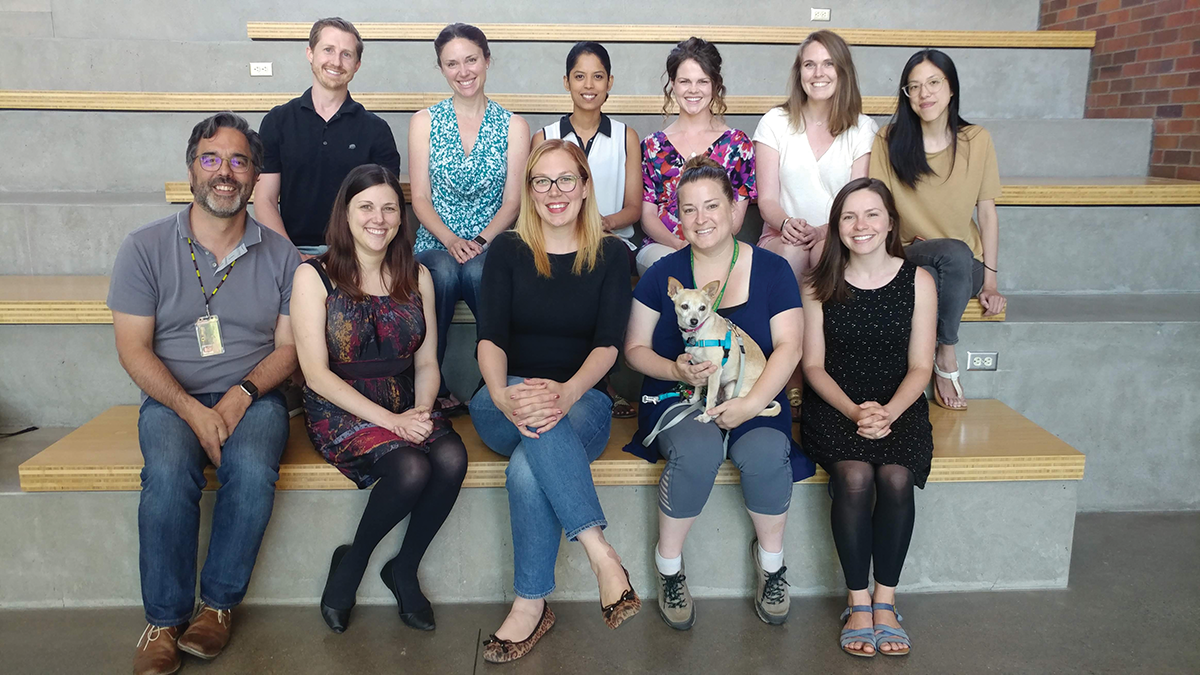
by Michelle Byrne, Assistant Research Professor, Department of Psychology
What does mental illness have to do with adolescent girls’ immune health? How can we better understand the development of girls who experience abuse? Are there health disparities for girls, especially girls that experience childhood adversity and depression? Our project asked these questions in order to fully explore how girls’ physical and mental health may be linked.
It is well known that women are two to three times more likely than men to suffer from depression. What is less widely known is that women also suffer from autoimmune diseases more than men. We think that psychological stress may have something to do with this, because the immune system responds to stress. Girls are also more likely than boys to experience some types of childhood traumas, such as sexual and emotional abuse, leading to increased stress. We also know that the experience of mental illness, like depression, can generate stress, as well.
I wondered if girls who experience both depression and sexual or emotional abuse, therefore, might develop more inflammatory and immune disorders. When I looked through the literature, I found that there wasn’t much work examining how multiple facets of identity, including gender, childhood adversity, and experience of mental illness combine and interact to prevent women from achieving optimal immune health.
Thanks in part to funding from the CSWS Faculty Research Grant, over the past eighteen months, my colleagues and I were able to collect and measure immune markers in 189 girls recruited from the community around the Eugene-Springfield area. The cohort of girls was part of the ongoing longitudinal study “Transitions in Adolescent Girls,” led by Dr. Jennifer Pfeifer in the UO Psychology Department. We’re following this cohort of girls as they go through early adolescence and puberty to understand how mental health problems emerge during this phase of life.
The girls participating in the study came in for a session where they completed questionnaires and interviews about a number of experiences, including childhood abuse and depression. They also gave us a small saliva sample that we can use to measure levels of inflammation in the body. Our amazing team of students, postdocs, research assistants, and project coordinators (pictured here) finished data collection earlier this year. Now we’re processing all of the questionnaires, interviews, and biological samples to get them ready for analysis. In a few months, we will test our hypothesis that girls’ experience of childhood maltreatment interacts with their mental health status to predict levels of inflammation.
Depending on what we find, the research may raise awareness of social inequality experienced by girls suffering from depression, and may eventually lead to interventions that reduce rates at which girls are mistreated sexually and emotionally, as well as interventions that reduce the stigma and burden of experiencing depression. Most of all, I hope this research will help people to understand that health disparities in women and girls are multidimensional, and that reducing them requires understanding how physical and mental health are closely linked during important periods of development.
— Michelle Byrne received a 2017 CSWS Faculty Research Grant in support of this research. An assistant research professor in the UO Department of Psychology, she is affiliated with the Center for Translational Neuroscience. Dr. Byrne received a Research Scientist Development Award from The National Institute of Mental Health of the National Institutes of Health to carry out a longitudinal study of adolescent girls on "the role of brain activity and connectivity in the association between immune function and depressive symptoms, and the effect of pubertal timing.”

